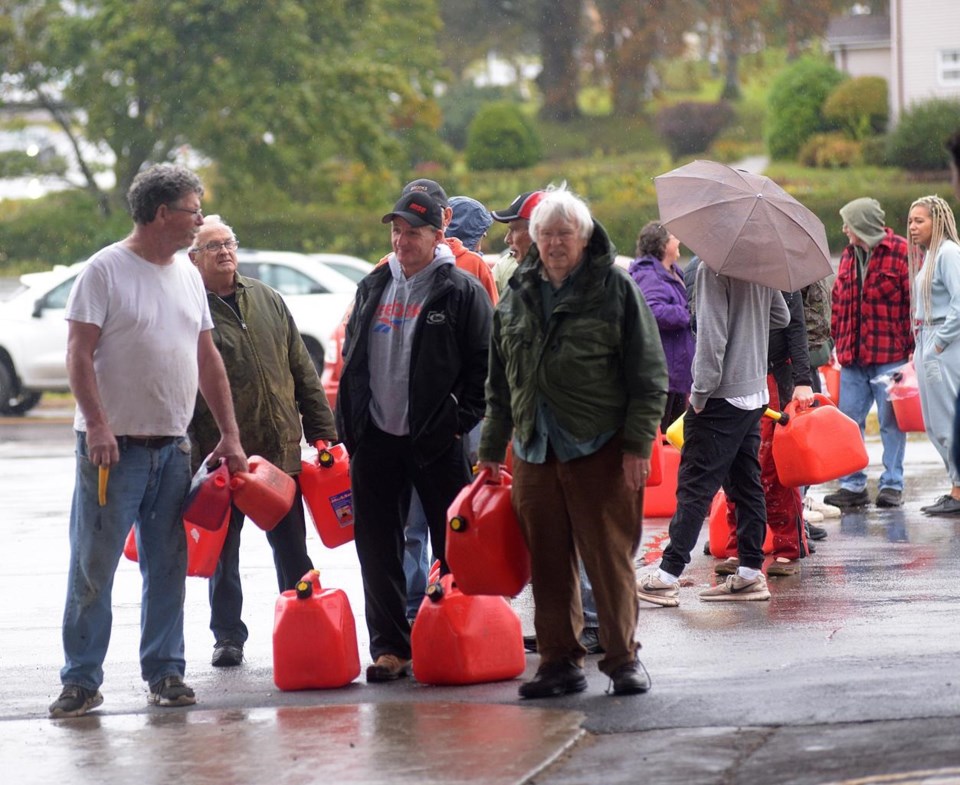CHARLOTTETOWN — Community groups in Prince Edward Island say they are worried that inflation, rent increases and the damage caused by post-tropical storm Fiona are leading to food insecurity among lower-income people.
Pauline Howard, a volunteer with the P.E.I. Food Exchange, says a regulatory decision last month allowing rent increases as high as 10.8 per cent for units heated with oil, along with a rise in spoiled food due to the storm, will cause hardship into the winter.
"People who are the working poor are, in particular, quite vulnerable right now," she said Tuesday in an interview, adding that these citizens rarely have sufficient income to own and run a generator to keep small freezers going.
"It's the layering of all these things coming at once, and people are running out of options," she said.
Nouhad Mourad of the Charlottetown Mutual Aid group says many people had to throw food away because of extended power outages, adding that some lower-income Islanders lost pay for several weeks.
When the post-tropical storm slammed into the Island on Sept. 24, it caused about 90 per cent of the electrical system — or about 82,000 customers — to lose power. About half remained without power for a week, with about 3,300 customers still without electricity as of Tuesday.
"People are being forced to choose rent over food already," Mourad said in an interview.
Mourad said her group monitored a lineup at a Charlottetown mall on Tuesday, composed of people hoping to receive $250 of provincial funds being administered by the Red Cross. The wait times, Mourad added, are "hours long" and the funds will fall short of the losses.
"We're not seeing a response. We're seeing people suffering, and needlessly."
Howard said that in the first week, Maritime Electric couldn't provide a clear timeline for when it would return power to clients. That lack of clarity, she said, prevented people from transferring their food to community centres or to friends' homes that were powered by generators.
"If I had known that it would be at least a week, I would have looked for other options," Howard said.
The utility has said during briefings that it had difficulty providing precise restoration times because it had to first dispatch teams to assess damage that was often complex and required extensive repair.
Matthew MacKay, the provincial minister of social development and housing, said in an email on Tuesday that numerous assistance programs have been rolled out, adding that the Progressive Conservative government intends to halt the rent increases approved by the Island's Regulatory and Appeals Commission.
In addition to the $250 being administered by the Red Cross toward the cost of lost or spoiled food, there are $100 grocery vouchers for seniors, MacKay said. There is also $150 for social program recipients and their dependants, $150 for seniors who are being supported to live on their own, and $150 for people living in provincially subsidized housing.
This report by The Canadian Press was first published Oct. 11, 2022.
— By Michael Tutton in Halifax.
The Canadian Press



